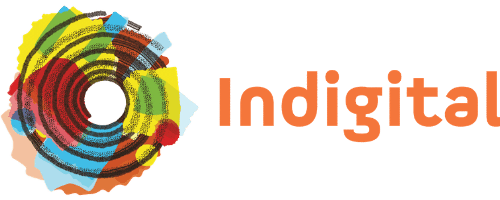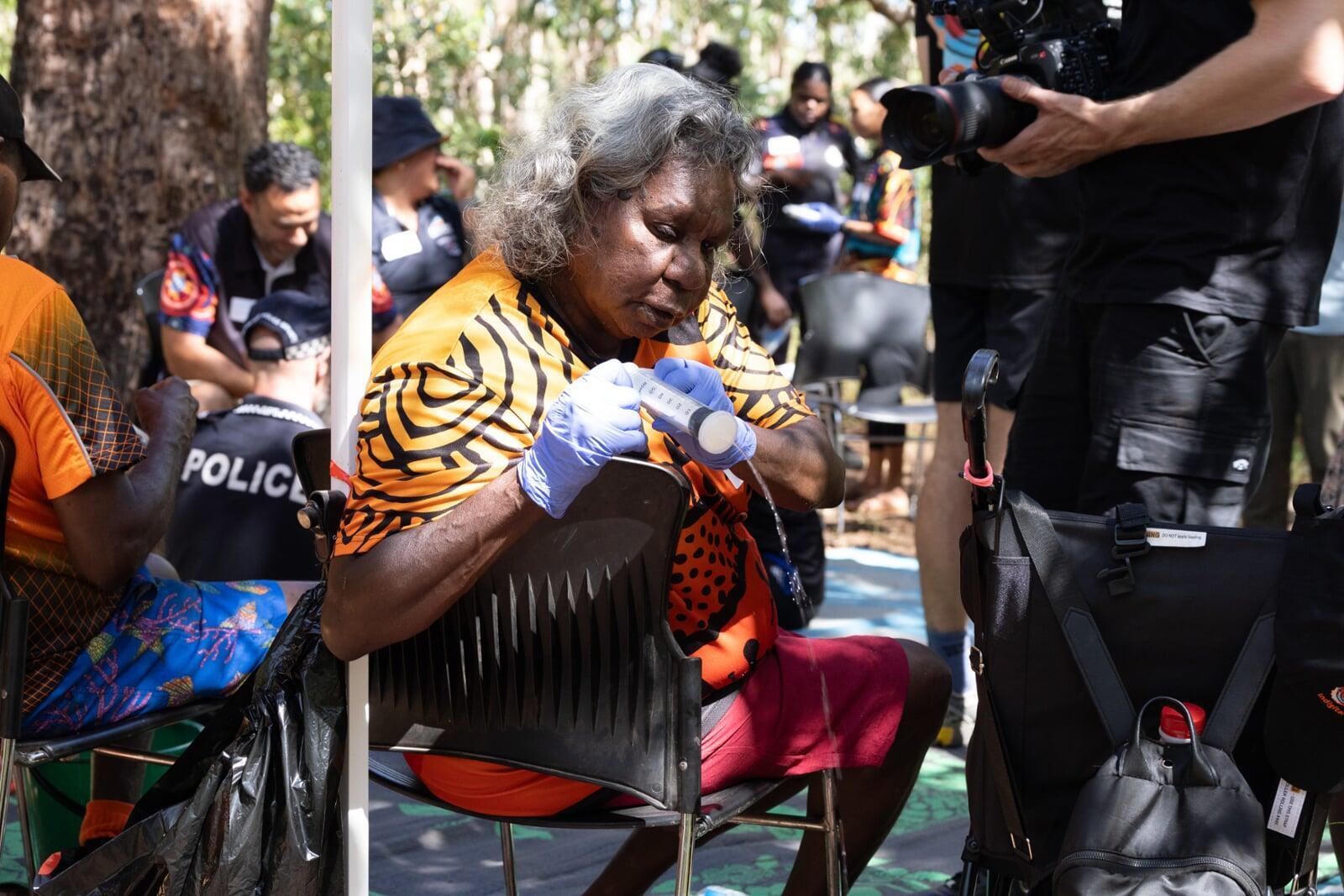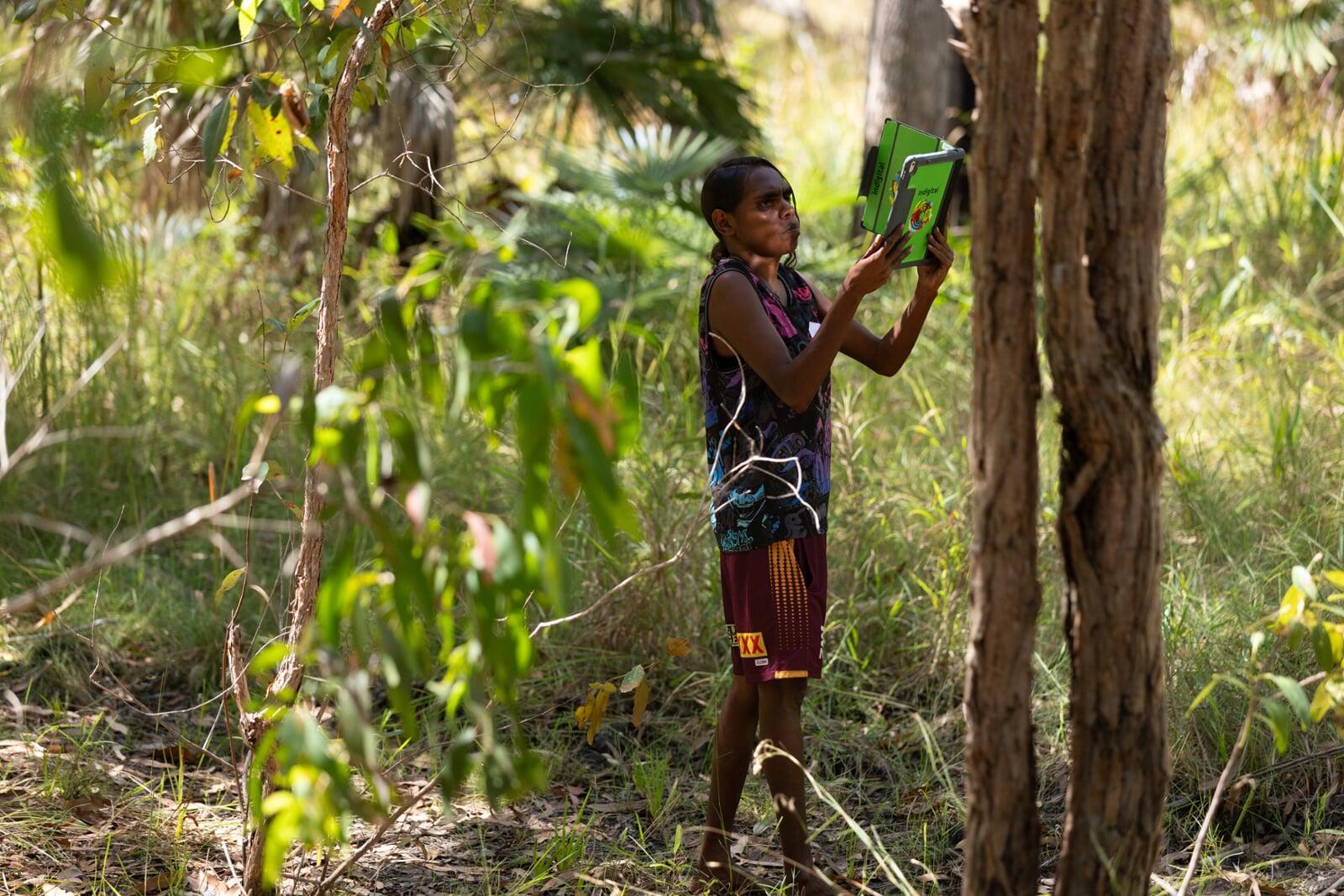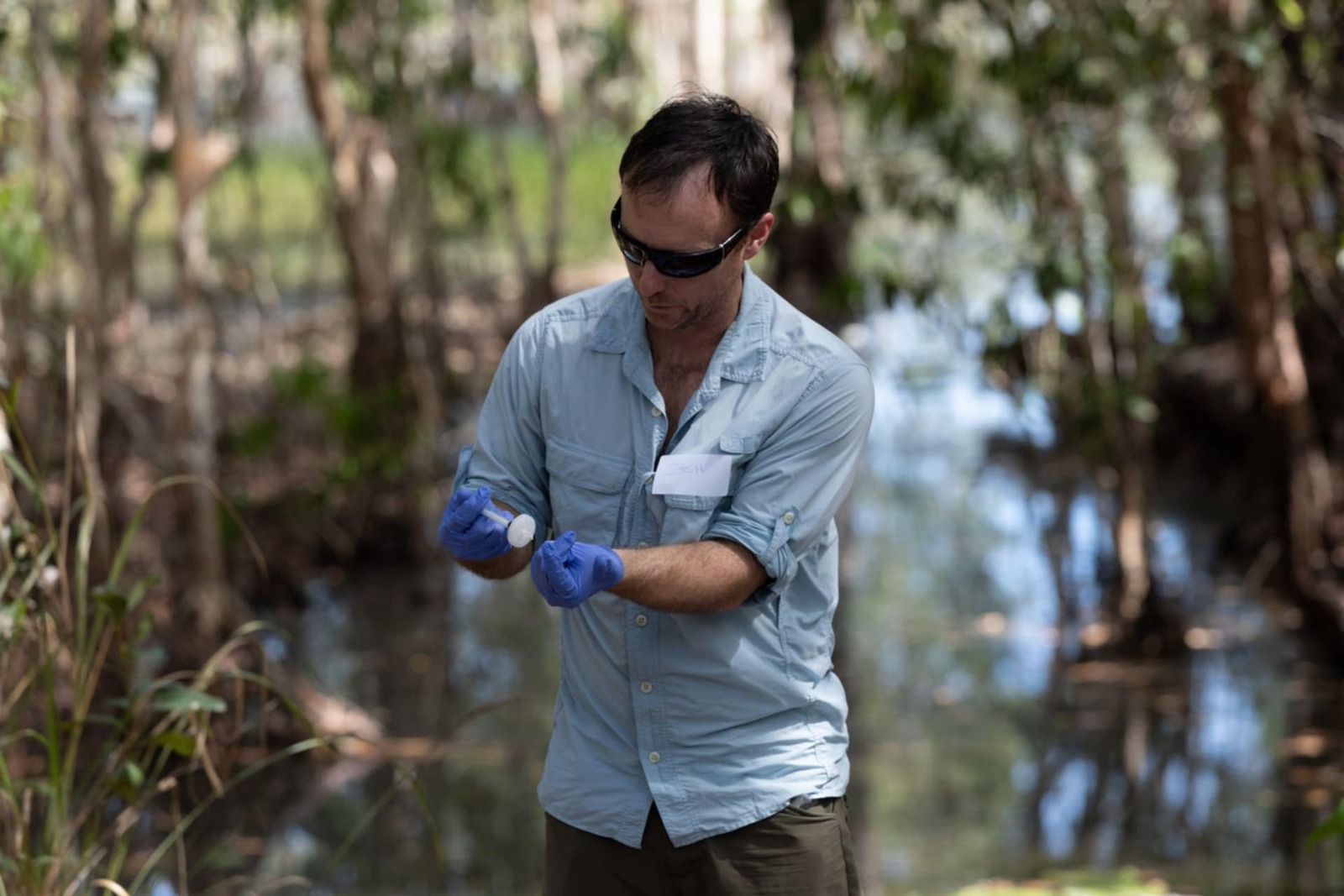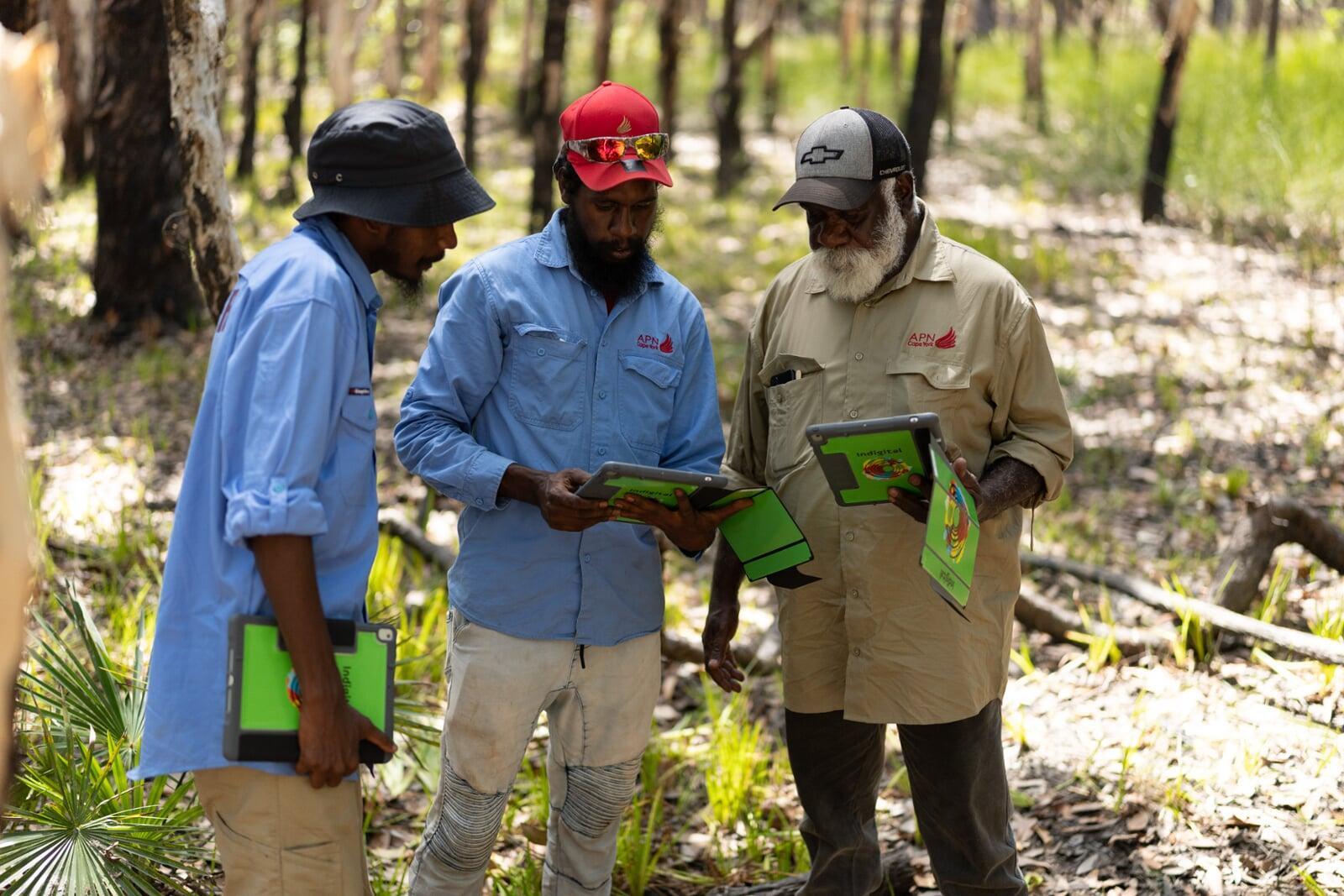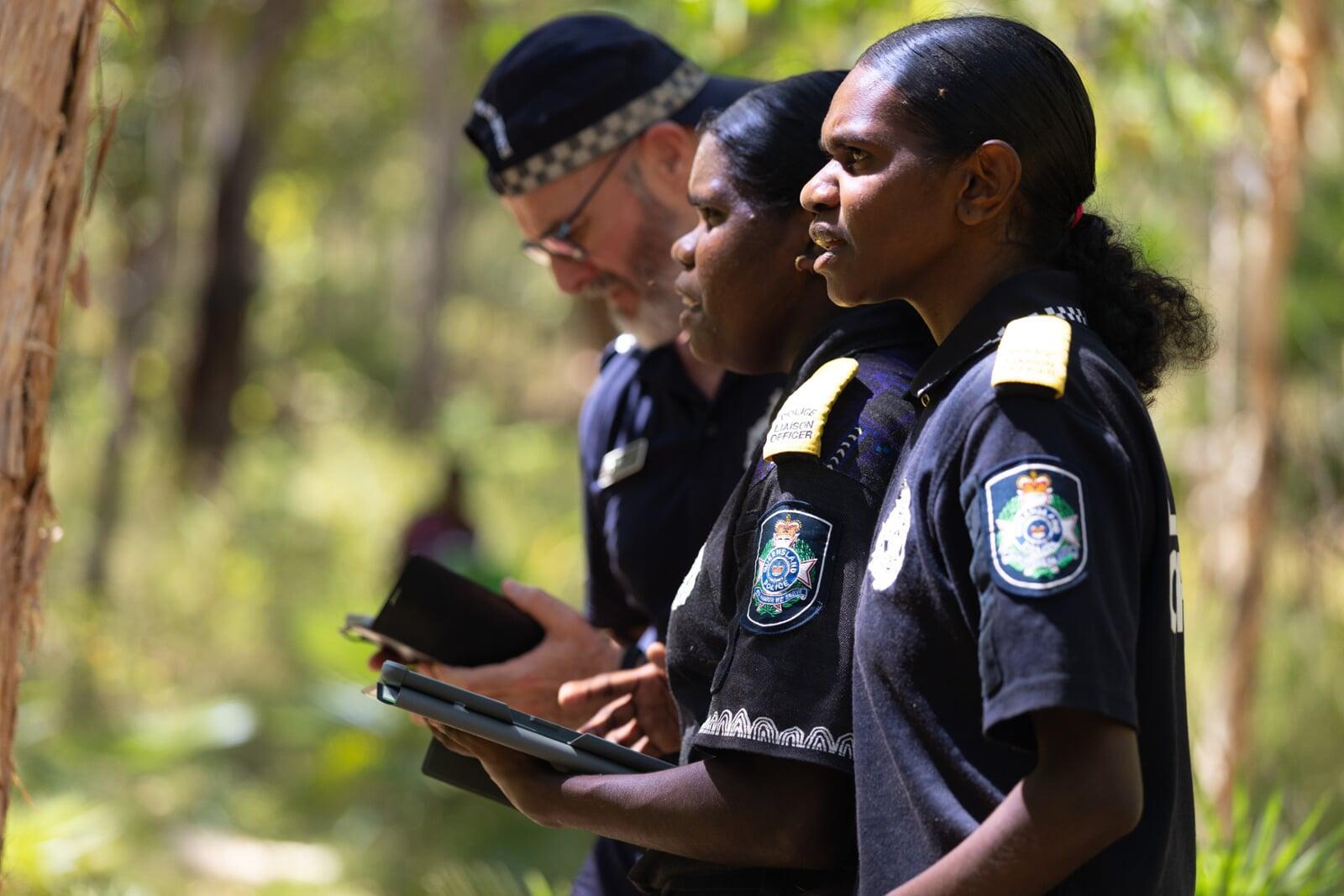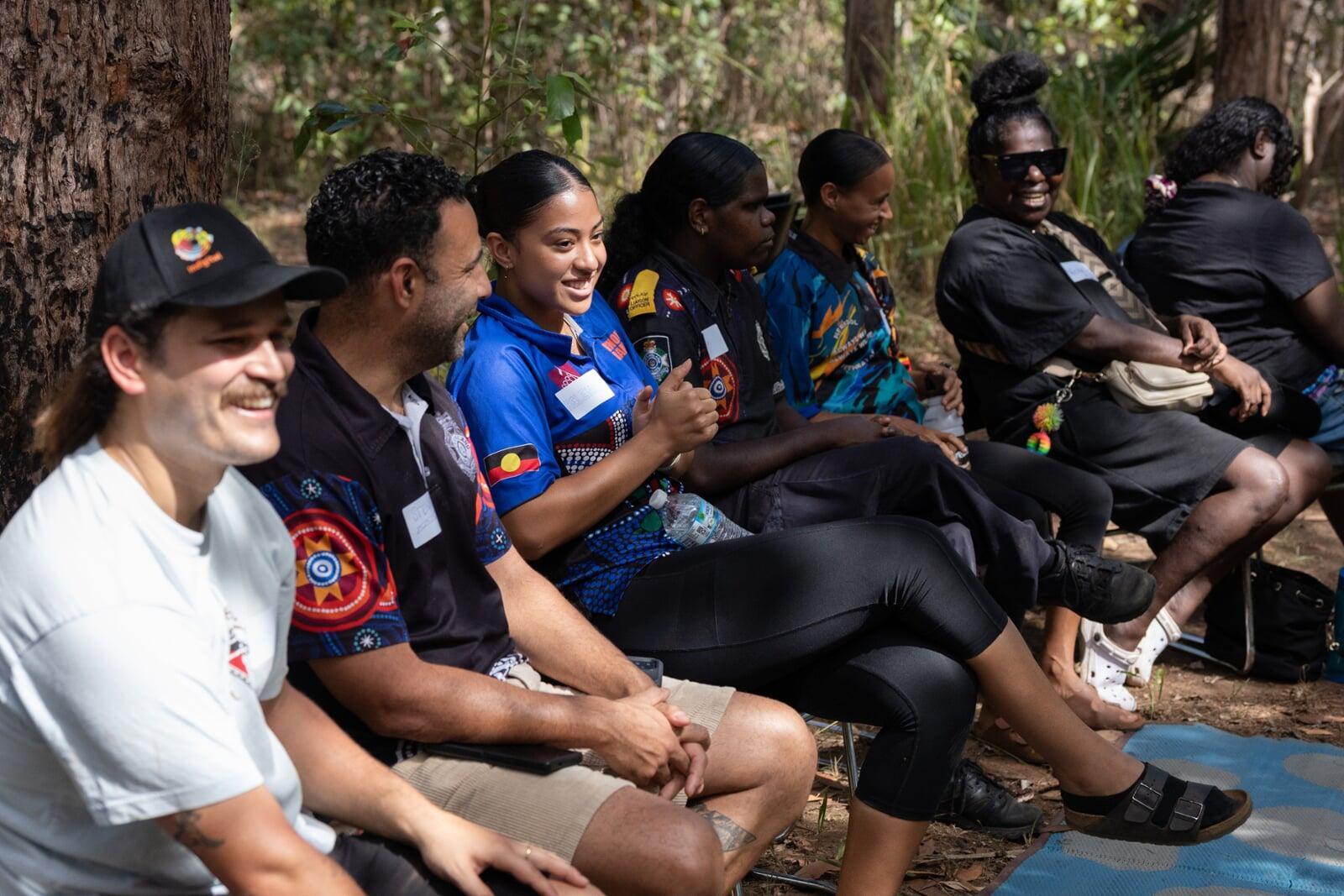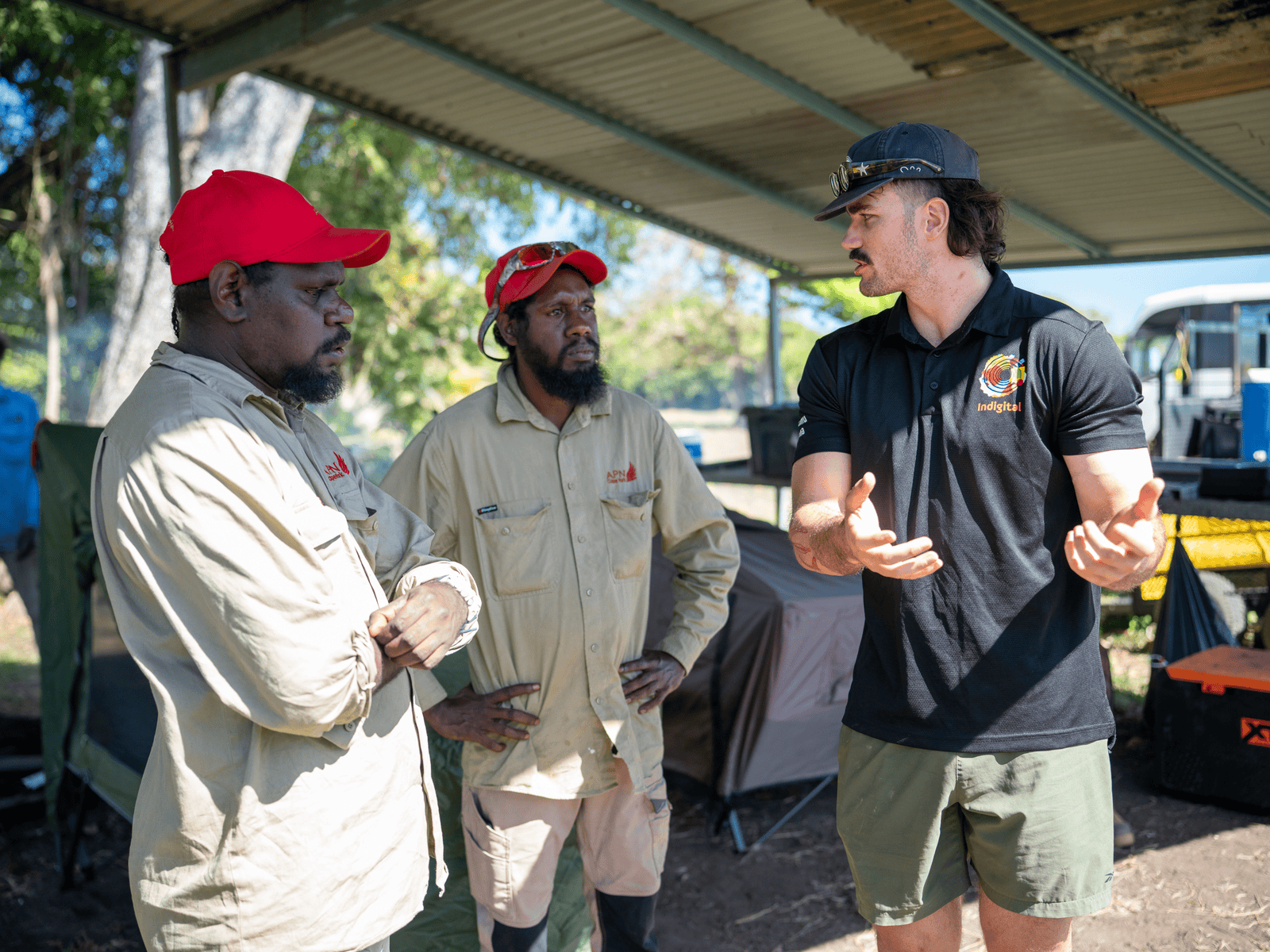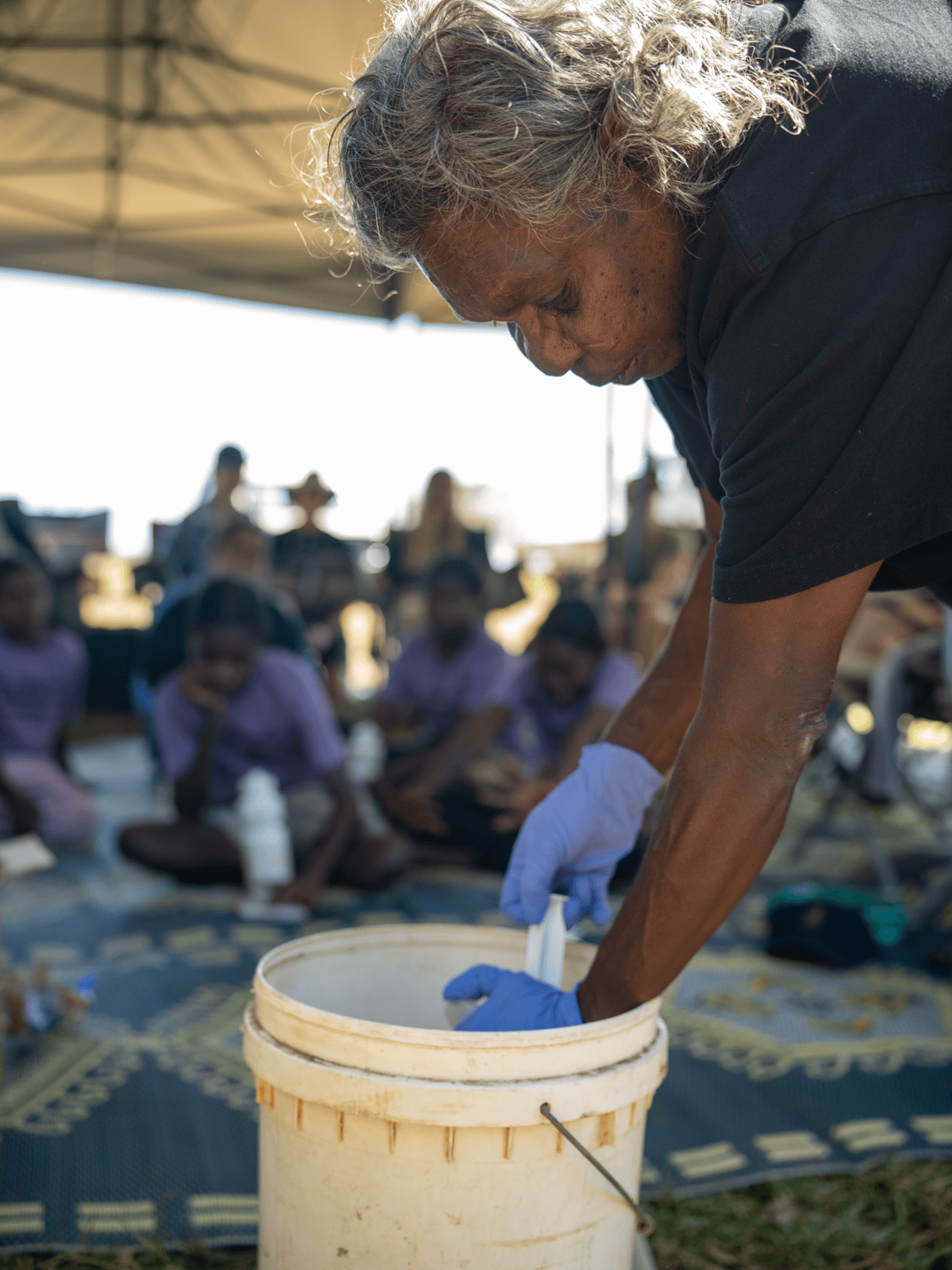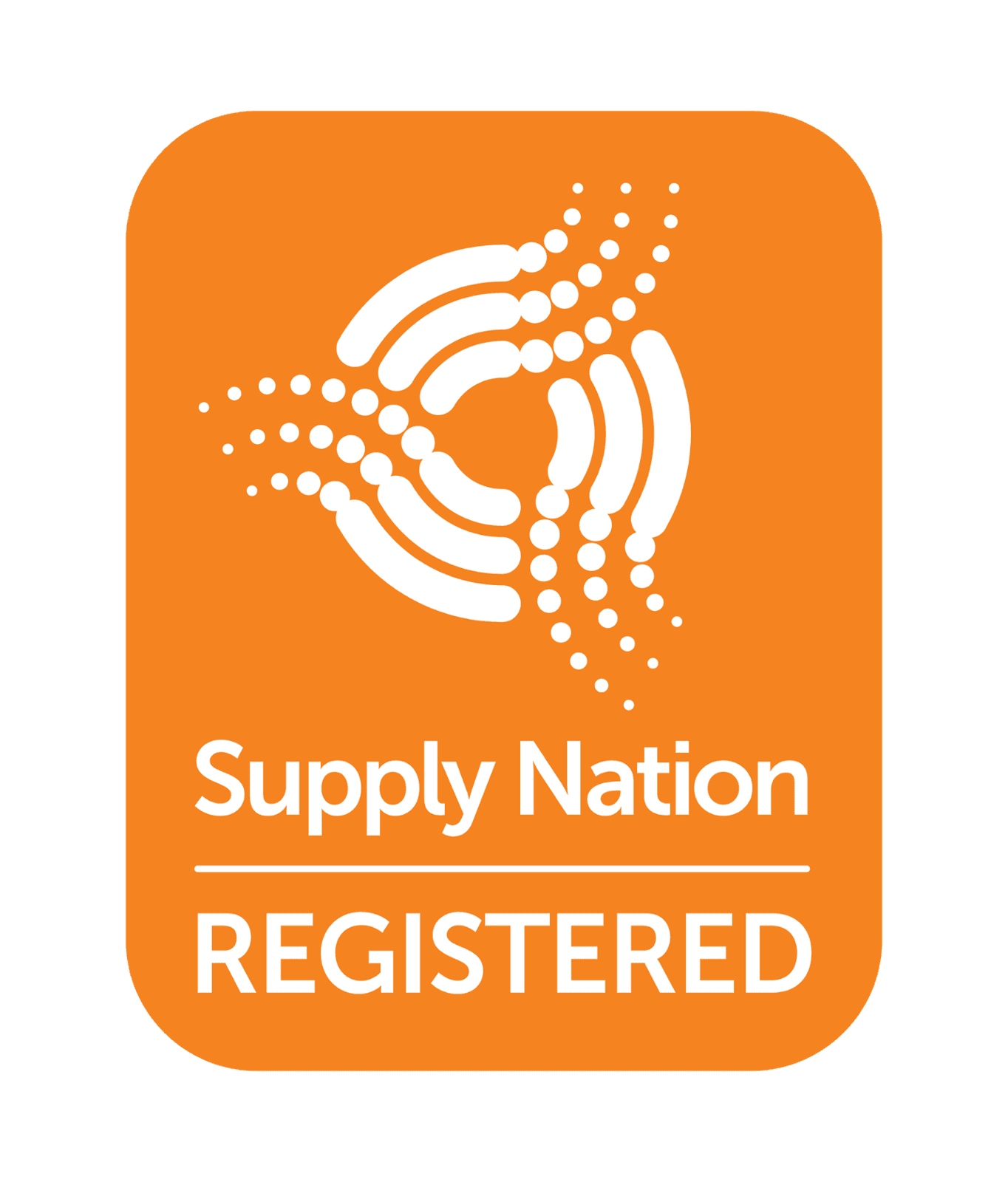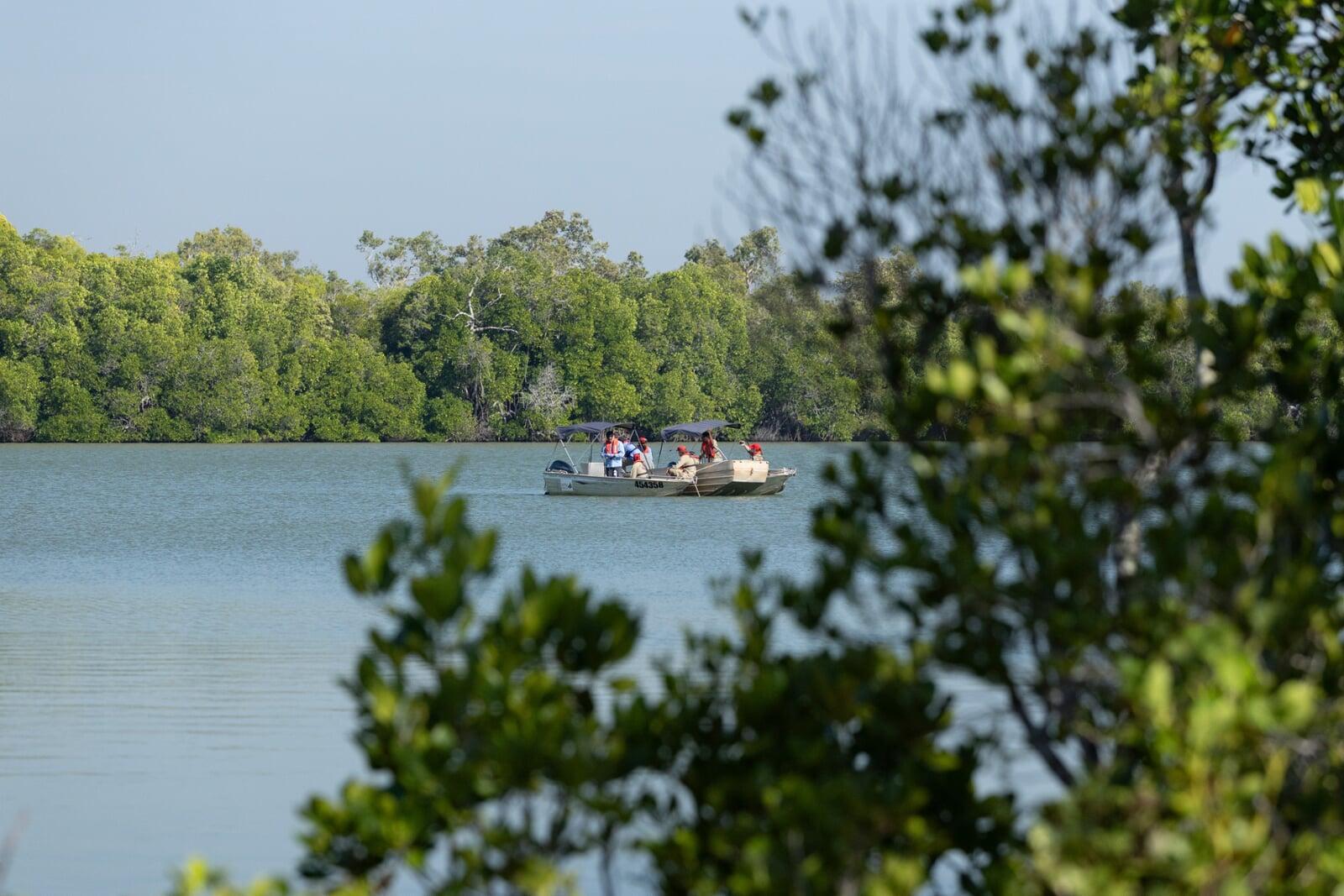
IMAGE: APN Rangers setting out to sample waterways, combining technology and cultural knowledge to care for Country.
The training led by Josh Griffiths and Harry Coleman from EnviroDNA, was practical, hands-on, and unhurried making space for questions, shared stories, and refining technique. Once confident, the APN Rangers headed out on the boats to apply their new skills, taking samples from different sites. Each sample will become part of a growing dataset, one that sits alongside cultural knowledge and a seasonal calendar to confirm species presence, absence, and shifts over time.
“Blending these genetic tools (eDNA) with Indigenous science gives us a deeply meaningful way to bring culture into the sampling process. It’s not just about collecting data, it’s about seeing Country through both lenses at once. When today’s biodiversity data is woven together with more than 60,000 years of cultural knowledge, we get a much richer picture of what’s happening in our environments. That combination strengthens how we care for Country, honouring cultural authority while using the best of genetic science to protect the future.” said Harry Coleman from EnviroDNA.
Back on land, another group worked with LiDAR scanning, moving slowly with the devices to capture Country. Laughter broke out as the 3D map appeared on the screen.
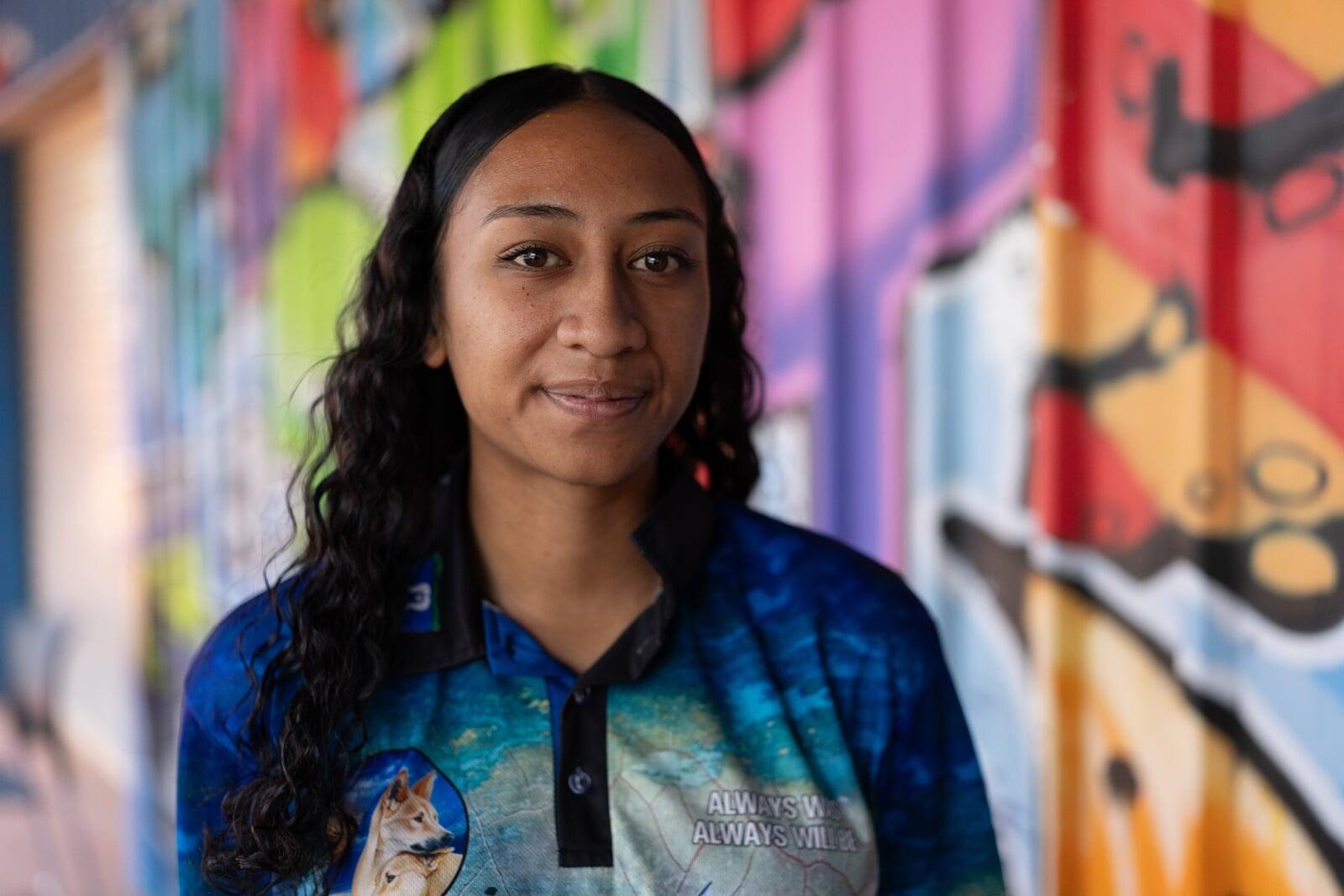
“I really had a lot of fun doing the scanning, I see it as a great tool for storytelling” said Community Member Jade Hema.
“I feel it’s so important for our younger generations to learn these technologies because they are already heading into a space where they are learning technology. This experience allows them to adapt it into their everyday life, whether they are out hunting or teaching their brothers or sisters, and it creates a great learning curve to connect with the Elders. The Elders can talk to them in language about what is what, what healing trees are, what foods there are, whether plant or animal. And by storing and archiving the data we collect, it also becomes a living record of Country that can grow and evolve over time, making it really useful for the community." Jade said.
IMAGE: Jade Hema taking part in the three-day Caring for Country Masterclass.
These moments, boats on the river, scanning on the shore, conversations between partners, are the ‘how’ of our work.
Led by community, we co-design and deliver in partnership with our ecosystem of collaborators, including Rio Tinto, APN Cape York, PCYC Queensland and the Elders who lead the way. Our role is to connect ideas, bring the right people and tools to the table, and ensure the skills stay in community long into the future.
Apalech Traditional Owner, Aunty Vera Koomeeta and member of the Indigital's Caring for Country Aboriginal Reference Group shared her hopes for the future of the program.
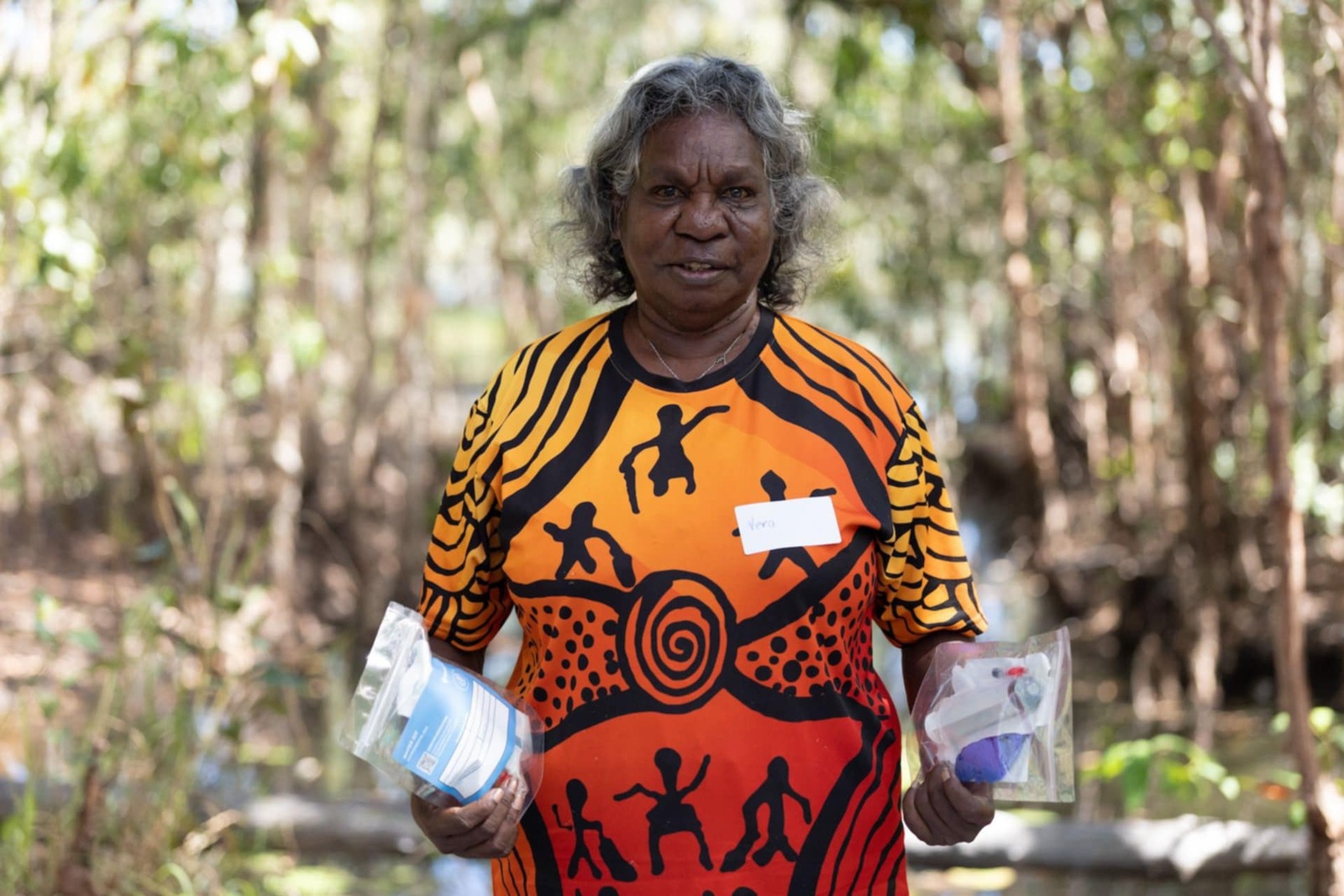
“I would like to see our Rangers manage our Country through these technologies and teach our children how to look after our country. I would like to learn about these technologies to manage tourism businesses for my grandchildren's future. We would like to keep our culture alive and our language strong for future generation.”
Having been part of both Season One and now Season Two of the program, Aunty Vera reflected on the value of building on what she has already learned and how it connects back to caring for Country;
"It's all piecing together, I have learnt so much and I want to see other community members being involved," said Aunty Vera.
IMAGE: Apalech Traditional Owner, Aunty Vera Koomeeta, sharing her new skills in water sampling.
Through the Caring for Country Season 2 program -Our Waters, Our Futures - communities are creating a living record of Country, one that grows and evolves over time. By bringing together cultural knowledge, environmental data, and 3D mapping, this record strengthens how we care for Country today while opening up new opportunities for the future. It’s community-owned, guided by cultural authority, and designed to build skills, connect technology with tradition, and spark new enterprise pathways, all led by the people who know this Country best.
What Happens Next - Teach it Together
From the Masterclass in Aurukun, our journey flowed into the Returning Generations camp, Tha' Pemp Wuut Mangkantam, hosted by APN Cape York on Southern Wik homelands.
Since 2011, this camp has brought Wik students, Elders, teachers, APN Rangers, and partners together for a week of learning on Country. This year Indigital was invited, alongside other partners, to join the camp to run the Teach it Together component of the Caring for Country program.
Caring for Country Lead Lindsay Davies with APN Rangers Jordan Tolkolkin and Brian Pamtoonda. Aunty Vera shares her new skills in water sampling with the next generation at Returning Generations camp — Tha' Pemp Wuut Mangkantam. Photos from this event were captured by Phil Schouteten (@phischcreative).
For a week, Wik Elders, Rangers, and young people led the learning wholly in Wik Mungkan. The very tools introduced in Aurukun, eDNA sampling and LiDAR scanning, were now taught by Elders on Country and shared with the next generation in their own language.
On Big Lake, Aunty Phyllis Yunkaporta sampled with eDNA equipment, her smile lighting up the morning as the kids called her an “environmental CSI detective.” Across camp, Wik Rangers demonstrated LiDAR scanning, capturing 3D holograms of Country while speaking entirely in Wik Mungkan.
This is the process we walk alongside communities with: do it together, teach it together, and then do it yourself. In Aurukun, we learned side by side. On Wik Country, Elders led the teaching. And in time, communities will carry this work forward independently, weaving technology into cultural practice in ways that honour both tradition and innovation.
It’s how knowledge is passed forward, how technology becomes part of culture, and how Country is cared for, today and for generations to come.
Impact Snapshot — Our Waters, Our Futures, Aurukun
Key outcomes from this Masterclass
- 22 participants including APN rangers, Elders, and community members engaged in hands-on skills training. Seven of which have gone on to deliver community sessions on these technologies.
- Two new monitoring tools introduced — eDNA sampling to detect species in waterways, and LiDAR scanning to map Country in high resolution.
- Immediate skills application with rangers completing independent sampling runs and LiDAR mapping on the same day.
- Integration with cultural knowledge to confirm species presence/absence and track changes in waterways over time.
- Data for the future — all samples and LiDAR scans contribute to deeping knowledge of Country for future environmental and conservations works and programs.
- Delivered in collaboration with APN Cape York, PCYC Queensland, Rio Tinto, and EnviroDNA.
- Led and guided by local custodians to ensure cultural authority, relevance, and long-term ownership.
Long-term value
- Builds transferable skills in environmental monitoring and digital mapping.
- Supports community self-determination in managing Country and waterways.
- Creates pathways for economic opportunities linked to land and water management.
